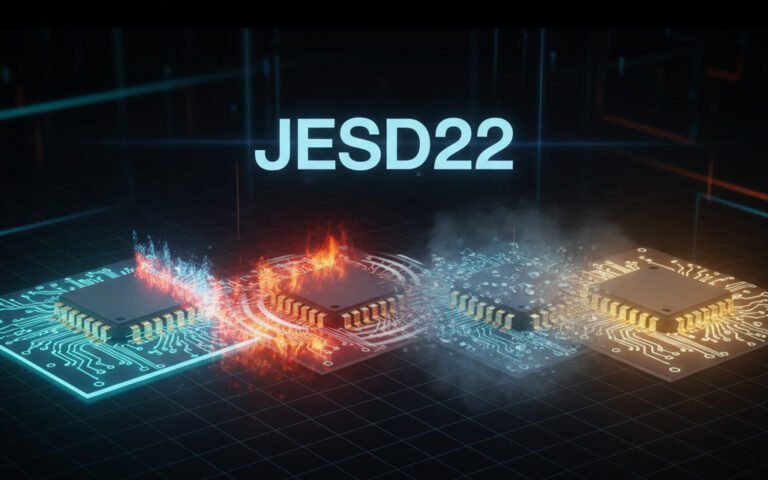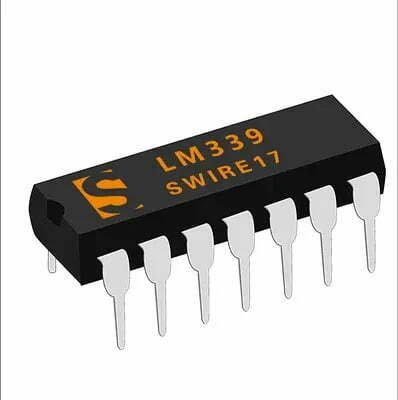Demystifying the standards for semiconductor reliability. Explore key test methods and understand their purpose with this interactive tool.
What is JESD22?
JESD22 is not a single standard, but a comprehensive series of test methods developed by JEDEC (Joint Electron Device Engineering Council) to ensure the reliability and durability of semiconductor devices. These standards provide a common language and methodology for the electronics industry to assess how components will perform under various stresses throughout their lifecycle.
Why is Compliance Important?
- ✓ Ensures Product Quality: Guarantees that components meet a high baseline for reliability before they reach consumers.
- ✓ Standardizes Testing: Allows for consistent and comparable reliability data across different manufacturers and suppliers.
- ✓ Meets Industry Requirements: Essential for qualifying components for use in critical applications like automotive, medical, and aerospace.
Explore Test Categories
The JESD22 standards are broadly organized into categories based on the type of stress applied. Click a category to learn more about its focus and see examples of common tests within it.
Environmental Tests
Focus on stresses from the device's operating environment, such as temperature, humidity, and electrical bias.
Mechanical Tests
Assess physical durability against stresses like shock, vibration, and the soldering process itself.
Electrical Tests
Evaluate the device's robustness against electrical events, primarily Electrostatic Discharge (ESD) and Latch-Up.
Common Tests Include:
Key Tests Explorer
Dive deeper into some of the most common and critical JESD22 test methods. Select a test to view its purpose, a summary of its procedure, and a visualization of its key parameters.
Purpose
Procedure Summary
Key Parameters
Frequently Asked Questions
Qualification is the one-time process of proving a device meets a given standard before it's released. Reliability testing is an ongoing process to monitor and ensure the device continues to meet those standards throughout its production life.
Not officially. JEDEC does not offer a "certification." Instead, manufacturers perform tests *according to* a JESD22 method and then state that their product "passes JESD22-A108 conditions" or is "qualified to JESD22 standards." It's a statement of compliance, not a formal certification from JEDEC.
AEC-Q100 is a qualification standard specifically for automotive electronics. It often refers to JESD22 methods as the basis for its tests. Think of JESD22 as the "how-to" manual for testing, while AEC-Q100 is the "what-to-test" requirement list for automotive parts, often with more stringent conditions.






